What is an HOA? Understanding Homeowners Associations

Moving into a new neighborhood and noticing a few things that feel… a little different. Maybe your lawn has to be a certain height, the color of your front door needs approval, or there’s a monthly fee you didn’t anticipate. You might start asking yourself: why are there so many rules? Who decides what’s allowed and what isn’t? And what exactly are you paying for?
Many homeowners encounter these situations and wonder if it’s all necessary—or even optional. Whether you’re buying a condo, a townhouse, or a single-family home in a planned community, these rules and fees often come as a surprise. Yet, they’re a common part of living in many neighborhoods across the country.
Key Takeaway
At its core, a homeowners association (HOA) is an organization that manages certain neighborhoods or communities, sets rules, and collects fees to maintain shared spaces and enforce community standards.
What Does HOA Stand For?
HOA stands for Homeowners Association. Essentially, it’s an organization that exists to manage and oversee certain neighborhoods or residential communities. While it might sound formal or even a little intimidating at first, the idea is pretty simple: the HOA helps keep the neighborhood in good shape, maintains shared spaces, and ensures everyone follows the community rules.
HOAs are most commonly found in condos, townhouses, and some single-family home neighborhoods, especially in planned communities. Even if you’ve never heard the term before, there’s a good chance you’ve lived in or visited a neighborhood that was governed by one. From keeping lawns tidy to managing shared swimming pools or clubhouses, HOAs play a role in making sure the community looks and functions a certain way.
What is the Point of an HOA?
The main purpose of a homeowners association is to protect property values and maintain a sense of order within the community. By setting and enforcing rules, an HOA ensures that homes, yards, and shared spaces stay well-kept and consistent, which can make the neighborhood more attractive to buyers and residents alike.
HOAs also manage shared amenities like swimming pools, parks, clubhouses, and security services. Without an HOA, it would often fall on individual homeowners to handle these responsibilities, which can lead to uneven maintenance or disputes about shared spaces. In short, the HOA exists to keep the neighborhood looking nice, running smoothly, and holding its value over time.
What do HOA fees cover?
HOA fees are used to maintain shared spaces and amenities in the community. This can include landscaping, swimming pools, clubhouses, street lighting, security, and sometimes even insurance for common areas. They can also go toward a reserve fund to cover future repairs or major projects, like repaving roads or replacing a community roof.
How much do HOA fees usually cost?
Fees vary depending on the community and what’s included. Some smaller neighborhoods may charge only $50–$100 per month, while communities with luxury amenities like a golf course, private gym, or extensive landscaping can charge several hundred dollars per month.
Are HOA fees the same for everyone in the community?
Not always. Fees can vary based on property size, type, or location within the community. For example, larger homes or corner lots might pay slightly higher fees than smaller units or interior homes.
Can HOA fees increase over time?
Yes. HOAs can raise fees to cover rising maintenance costs or unexpected expenses. Boards usually notify homeowners before increasing fees, but it’s a good idea to review the HOA’s financial statements to understand past trends.
What happens if I don’t pay my HOA fees?
Non-payment can lead to fines, interest charges, and even legal action. In extreme cases, the HOA can place a lien on your property, which could affect your ability to sell your home or, in rare cases, result in foreclosure.
Are there hidden fees or special assessments?
A: Sometimes. Special assessments are one-time charges for unexpected repairs or large projects that the regular HOA fees don’t cover, like fixing a storm-damaged roof or resurfacing the pool.
Can I negotiate or reduce my HOA fees?
A: Generally, HOA fees are fixed by the board, and negotiation isn’t possible for an individual homeowner. However, you can attend meetings, vote for board members, or join committees to have a say in how money is spent.
Can You Refuse to Join an HOA?
When you buy a home in a community governed by a homeowners association, joining the HOA is usually not optional. In most cases, the HOA is tied to the property itself, which means the rules and fees automatically apply to anyone who owns a home there. Even if you don’t want to participate in meetings or use the amenities, you are still legally required to follow the HOA’s rules and pay the fees.
Refusing to join or ignoring the HOA is generally not allowed, and attempting to opt out can lead to legal complications. This is why it’s important to review HOA documents carefully before purchasing a home, so you know exactly what you’re agreeing to.
Some states and communities may have minor exceptions, but for the most part, living in an HOA community means being a member by default.
Can an HOA Force You to Pay?
Yes, an HOA has the legal authority to enforce payment of fees from all homeowners in the community. When you buy a property in an HOA-governed neighborhood, you agree to abide by the rules and pay any associated fees. Non-payment is taken seriously because these fees fund the maintenance of shared spaces, amenities, and other community services.
If a homeowner fails to pay, the HOA can take several actions:
-
Charge late fees or interest on the outstanding balance.
-
Place a lien on the property, which can complicate selling or refinancing the home.
-
In extreme cases, pursue legal action, which could include foreclosure.
This is why it’s essential for homeowners to budget for HOA fees and ensure they are paid on time. Even if you rarely use the amenities, the fees are mandatory and enforceable by law.
Who Needs to Follow HOA Rules?
HOA rules apply to all homeowners in the community, and in many cases, they also extend to renters living in those homes. This means that even if you rent out your property, your tenants are expected to follow the HOA’s rules and regulations.
The rules, known as Covenants, Conditions, and Restrictions (CC&Rs), cover a wide range of community standards—everything from lawn maintenance and exterior paint colors to parking regulations and noise restrictions. The HOA has the authority to enforce these rules, often through fines or other penalties, to maintain the neighborhood’s appearance and property values.
Understanding who must comply is important because homeowners remain legally responsible for their property and any violations that occur, even if they are renting it out.
Recent Blog
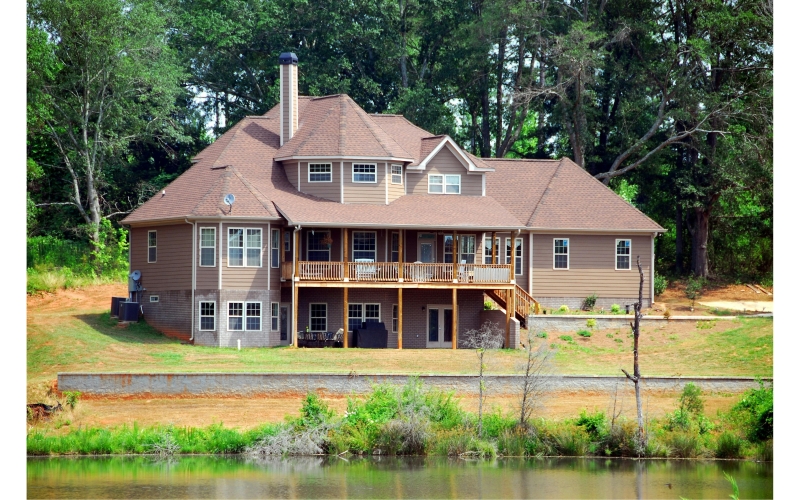
What Does Under Contract Mean in Real Estate?
"Under contract" indicates a home has an accepted offer but isn’t sold until all conditions are met.
Read MoreWhat Does Under Contract Mean in Real Estate?
How Rent-to-Own Works: Process & Key Details
A rent-to-own agreement allows you to rent a home now and buy it later, with part of your rent going toward the purchase price.
Read MoreHow Rent-to-Own Works: Process & Key Details
Different Types of Houses and Which One is For You?
There are a lot of types of houses that exist today, but only one would suit you the most!
Read MoreDifferent Types of Houses and Which One is For You?
How Long Does It Take to Build a House
Building a house typically takes 6 to 12 months, depending on size, design, permits, weather, and construction type.
Read MoreHow Long Does It Take to Build a House
What Is Earnest Money? A Simple Guide for First-Time Homebuyers
Earnest money is a deposit you make after your offer on a home is accepted. It shows the seller that you’re serious about buying.
Read MoreWhat Is Earnest Money? A Simple Guide for First-Time Homebuyers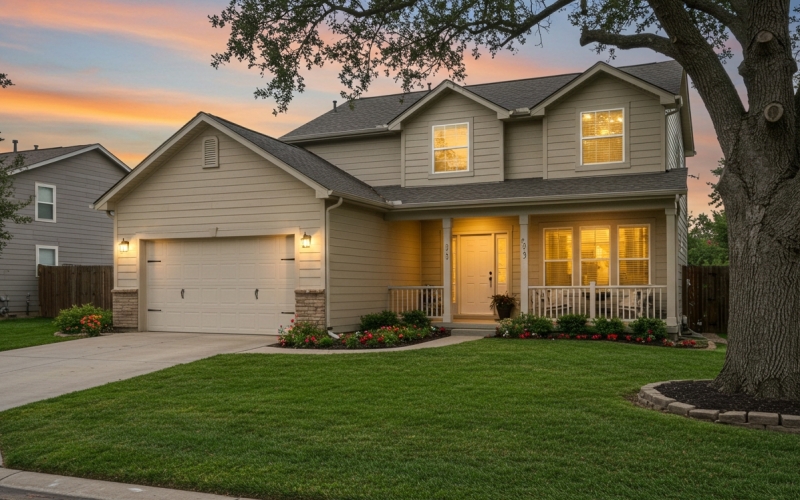
How Can I See Old Listing Photos of a House
Use the site: operator on Google or Google Street View to find old listing photos of a house easily and quickly.
Read MoreHow Can I See Old Listing Photos of a House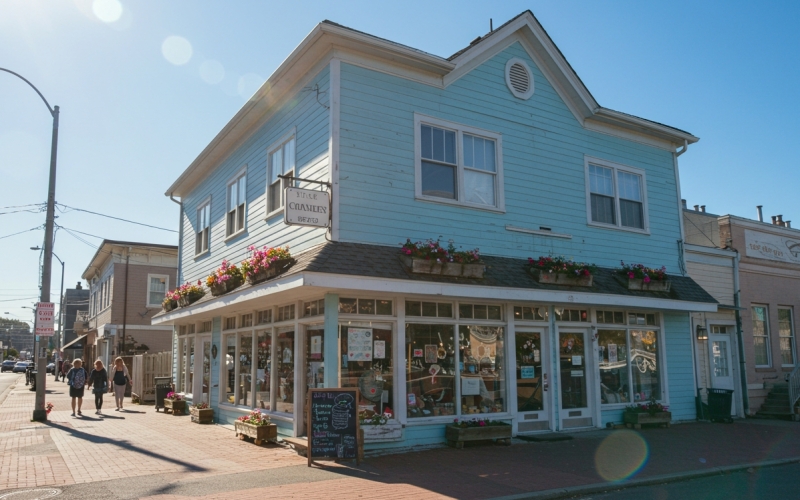
What Does a Commercial Property Buyer’s Agent Do? (And Why You Need One)
When you work with a commercial property buyer’s agent, you’re not just hiring someone to open doors. You’re getting a full-time guide through every step of the buying process.
Read MoreWhat Does a Commercial Property Buyer’s Agent Do? (And Why You Need One)
The Tools You Need as a Real Estate Agent
With all the tools we have today, it is almost impossible to have a reason to quit early. We have it easier today than it was 10 or 20 years ago
Read MoreThe Tools You Need as a Real Estate Agent
Real Estate Marketing for Agents: The Modern Playbook to Get More Clients
Marketing helps agents stand out in a competitive market. Use both online and offline strategies to grow your reach. Tools like social media, SEO, and video help you build trust. Platforms like Zillow and Realtor.com let you show up in local searches. The goal is simple: stay visible, stay consistent, stay helpful
Read MoreReal Estate Marketing for Agents: The Modern Playbook to Get More Clients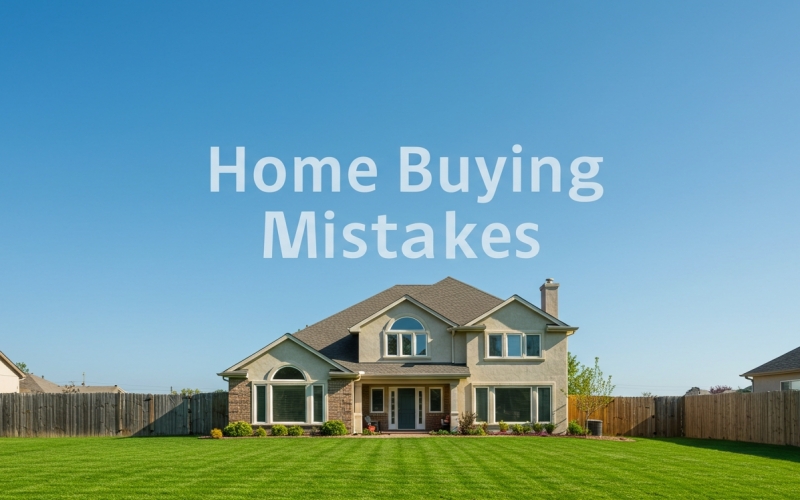
8 Common Mistakes Home Buyers Make
These common mistakes often cause buyers to incur more costs than expected. Make sure you understand what these are.
Read More8 Common Mistakes Home Buyers Make
What Does 'Contingent' Mean in Real Estate?
In real estate, the word “contingent” means that a seller has accepted an offer on the home—but the sale isn’t final yet.
Read MoreWhat Does 'Contingent' Mean in Real Estate?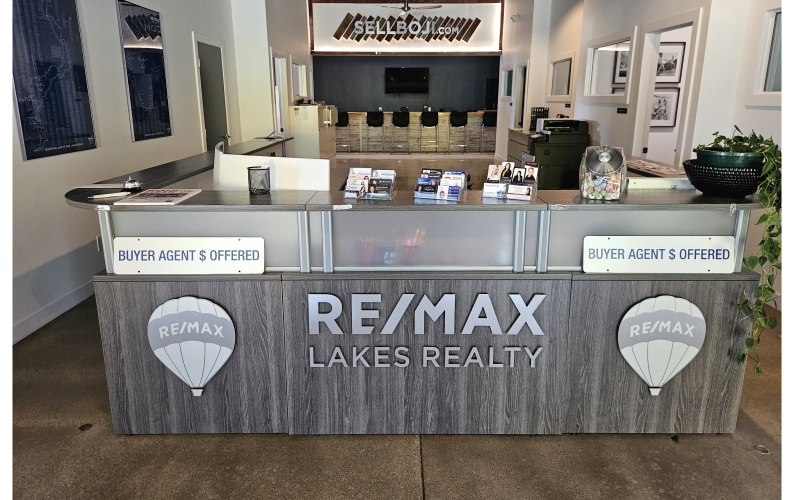
Why Should Home Sellers Offer Buyer Broker Compensation?
Paying buyer broker compensation can boost interest, reduce buyer costs, and lead to faster, smoother home sales, giving sellers a real market edge.
Read MoreWhy Should Home Sellers Offer Buyer Broker Compensation?